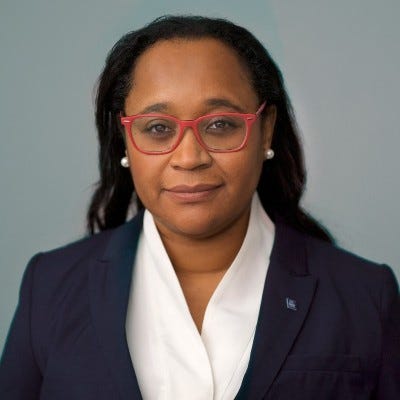Interview: Fernanda Lopes Larsen- Bridging Innovation and Agriculture
How technology is transforming how we produce food
Fernanda Lopes Larsen has spent over two decades navigating high-stakes industries, from fast-moving consumer goods to agrichemicals. A seasoned C-suite executive and board member, she is known for her ability to drive transformation, modernize operations, and integrate digital solutions in industrial sectors. In this conversation, she shares insights into her journey, her passion for corporate innovation, and the urgent need for digital transformation in agriculture.
The Drive for Innovation
"I've always been super passionate about the topic," Fernanda begins. "I’ve had an academic interest in corporate innovation for a long time. I pursued the Stanford LEAD Corporate Innovation Program, as well as the Global Executive MBA at IESE Business School. During my studies, I focused on innovation and technology-related electives. My capstone project was on the digital transformation of my region."
Her passion translated into a professional mission: to challenge the status quo within leadership teams and advocate for modernization in industries often more complex to be changed. "I’ve always been the voice pushing the company to embrace technology," she says. "We operate in a very conservative sector."
Agriculture’s Digital Lag
When asked whether the resistance to digital transformation is more of a company-specific challenge or a sector-wide issue, Fernanda is clear: "It’s the sector. We’re talking about an agricultural commodity industry that has historically been slow to adopt change, if compared with other industries. But we’ve been exploring these changes for some time, and the potential is enormous."
She highlights a critical gap in the industry: the limited digital adoption among smallholder farmers. "Many farmers don’t realize how much they need technology. There’s a huge knowledge gap. They’re still farming like their grandparents did, with limited access to modern tools or insights."
Fernanda’s vision is clear: "If we could leverage digital solutions to close this knowledge gap at scale, it would be transformational—not just for farmers but for global food security."
The Role of AI in Agriculture
Artificial Intelligence (AI) is playing an increasingly critical role in transforming agricultural practices. By leveraging AI-driven predictive analytics, farmers can make informed decisions about planting cycles, soil health, and pest management, ultimately increasing efficiency and reducing waste. AI-powered drones and sensors are being used to monitor crop conditions in real-time, allowing for targeted interventions that optimize yields while conserving resources.
Moreover, AI-driven automation can help bridge the knowledge gap Fernanda highlighted. "Many farmers lack access to the latest agronomic insights, but AI can democratize this knowledge," she explains. "From AI-powered chatbots providing instant farming advice to machine-learning algorithms optimizing supply chains, these solutions can make modern agricultural practices more accessible and scalable."
AI is also proving invaluable for large agricultural companies that generate vast amounts of data. By implementing AI-driven analytics, companies can capture and interpret insights from weather patterns, soil health, crop performance, and market trends. This data-driven approach allows businesses to improve supply chain management, predict demand fluctuations, and enhance sustainability efforts. "AI helps us make sense of the immense amount of information we have at our disposal," Fernanda notes. "By leveraging this knowledge, we can drive smarter decision-making and ensure that both farmers and corporations benefit from innovation."
The Impact of Digital Transformation in Agriculture
The stakes are high. "More food, better food, more sustainable food—that’s the impact," she emphasizes. "Agriculture is the second-largest emitter of greenhouse gases after the energy sector. The sustainability transition required in agriculture is enormous."
With technology, farmers can optimize resource use, reduce emissions, and improve yields. "If we can modernize agricultural practices through data-driven solutions, precision farming, and better access to knowledge, we can create a more sustainable food system. The challenge is making this transformation accessible and scalable."
Looking Ahead: Shaping the Future of Agriculture
As she continues to drive transformation, Fernanda remains committed to discovering new ways to bridge the gap between innovation and agriculture. "I’m still diving deeper into this industry and trying to come across great use cases. This is just the beginning."
Her parting words encapsulate her mission: "We have the technology, and we have the need. Now, we must ensure that those who can benefit the most—farmers—understand the ‘why’ and have the tools to act. That’s the future we need to build."
Final Thoughts for Leaders
Fernanda Lopes Larsen is not just a leader—she is a force for change. Her insights serve as a call to action for both corporate decision-makers and policymakers to rethink agriculture’s role in the digital age. The challenge is vast, but so is the opportunity. With leaders like Fernanda at the forefront, the future of food and sustainability looks a little brighter.




